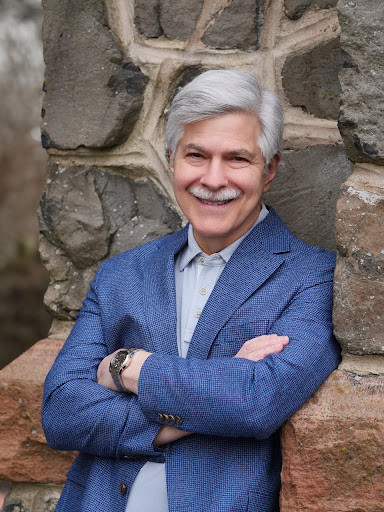The Silent Struggle: Raising Awareness About POTS with Dr. Nicholas Tullo

Postural tachycardia syndrome (POTS) is a condition many have never heard of, yet it affects a significant and growing segment of the population. It's a syndrome that can leave once-active individuals bedridden, grappling with a cascade of symptoms that defy easy categorization. Dr. Nicholas Tullo, a seasoned cardiac electrophysiologist and founder of ECG AcademyⓇ, helps patients find answers in this medical terrain.
Dr. Tullo has spent decades on the frontlines of cardiac care, specializing in arrhythmias and fainting disorders. He has built a career that spans patient care, academic instruction, and clinical research. Moreover, he founded a dedicated center for the evaluation of fainting and autonomic dysfunction, helping numerous patients who fall into the diagnostic shadows of conventional medicine.
As a fellow of a leading professional society for heart rhythm disorders and a certified cardiac device specialist, Dr. Tullo possesses a depth of knowledge in his work. He has led pioneering research projects, implanted next-generation cardiac monitors, and received multiple teaching and clinical recognitions. Notably, he's one of the few specialists in northern New Jersey who treats POTS patients, many of whom travel long distances to see him after exhausting every other option.
POTS affects approximately one to three million Americans, impacting one in every 100 teens. A vast majority of POTS patients are female between the ages of 12 and 50. Despite the condition's prevalence, it typically takes years for patients to receive a diagnosis. Many will see several doctors before someone finally connects the dots.
"The syndrome can be so misunderstood that patients are frequently told their symptoms are psychological in origin, or worse, imagined," says Dr. Tullo. Fatigue, brain fog, shortness of breath, heart palpitations, trouble sleeping, chest pain, and anxiety are common symptoms. However, because they present in varied combinations and fluctuate throughout the day, they often evade clear diagnosis.
Another characteristic of POTS is that symptoms consistently improve when lying down. This positional sensitivity gives the syndrome its name, yet it's still overlooked in clinical settings. "I've seen patients use wearable devices to track their heart rates. They come to appointments with video evidence of lying down and having a normal heart rate. Then, when they stand up, it surges," Dr. Tullo shares.
The cardiac electrophysiologist believes that since the onset of the COVID-19 pandemic, the numbers have only increased. A large-scale study attests to this, finding a five-fold increase in POTS incidence post-COVID. Research shows that POTS may have an autoimmune component. In this sense, it functions less like a singular disease and more like a syndrome.
Dr. Tullo describes POTS as a condition where the brain, which should regulate the body's response to standing, instead triggers an overwhelming cardiovascular reaction. He explains, "The brain is the leader, the heart is the team player. In POTS, that team effort breaks down."
POTS is challenging to treat because there's no one-size-fits-all solution. Dr. Tullo states that standard treatments that work for other heart rate disorders can worsen symptoms. "For example, forcing the heart to slow down, without addressing the root cause, can impair blood flow to the brain. It will just intensify the symptoms the patient is trying to escape," he says.
This is why a nuanced and analytical approach is essential. Dr. Tullo doesn't simply treat numbers on a monitor. He investigates each patient's physiological profile to craft a personalized care plan. For some, the issue may stem from blood pooling in the lower extremities. Others may struggle with low blood volume, immune dysregulation, or comorbid autoimmune disorders such as lupus, Sjögren's syndrome, or mast cell activation disorders. Each presentation requires its own strategy.
Dr. Tullo also prioritizes education, ensuring patients understand what's happening in their bodies and why. He encourages them to record consultations so they can revisit the information later. Determining the condition is usually the turning point. "I've witnessed many patients reclaim their lives through increased fluid intake, higher salt consumption, compression garments, targeted exercise regimens, and careful medication adjustments. But none of this is possible without first identifying the condition," he states.
That's where the healthcare system needs to improve. POTS deserves more attention. "Many medical curricula don't cover autonomic disorders in depth, so general practitioners and even some specialists don't easily recognize the signs. This lack of awareness means many patients suffer for years without adequate support," Dr. Tullo remarks.
He is a vocal advocate for change. Dr. Tullo calls for more research funding, particularly in the autoimmune mechanisms suspected to underlie the condition. Promising avenues include immune-modulating drugs and targeted therapies. However, without investment, the field remains a patchwork of trial and error.
Amid such uncertainty, the role of a specialist becomes all the more vital. Dr. Tullo offers guidance for many who have felt invisible within the space. He's helping shift the landscape by elevating awareness, pushing for better education, and advocating for systemic research.
© Copyright IBTimes 2025. All rights reserved.



















